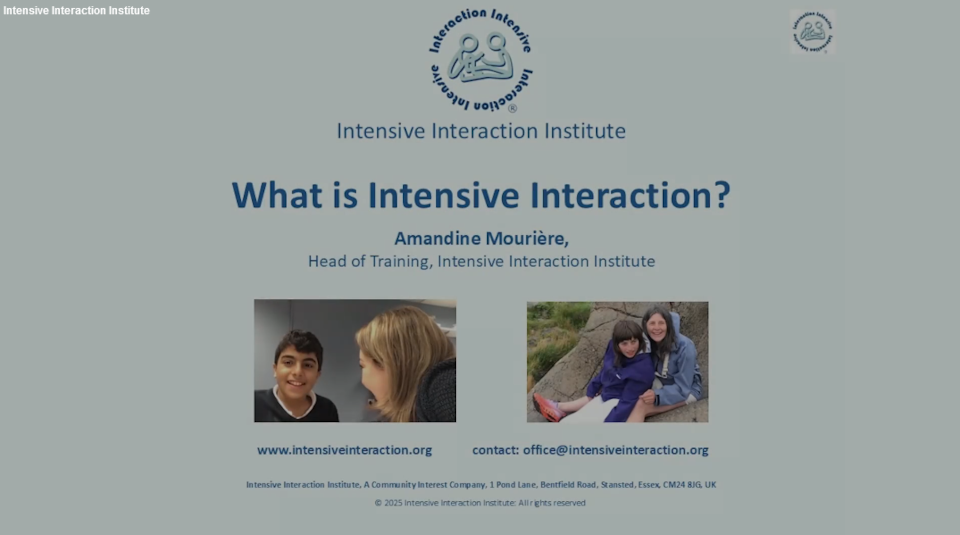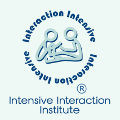What is Intensive Interaction?
In a nutshell, Intensive Interaction enables practitioners and family members to simplify and fine tune their communication style.
In so doing the person they are supporting is empowered to successfully connect and engage in a two-way exchange.
These meaningful and enjoyable interactions in turn promote social inclusion and emotional well-being and support the development of The Fundamentals of Communication.

The Fundamentals of Communication
Personal space
the ability to share personal space comfortably with others
Attending
developing the ability to attend to another person
Physical contact
understanding and using physical contacts
Eye contact
understanding and using eye contacts
Facial expression
understanding and using facial expressions
Turn taking
learning to take turns in exchanges of behaviour … and engage in sequences of activity with another person
Vocalisation
understanding and using vocalisations meaningfully (including speech development)
Being with others
enjoying being with another person
The emotional and psychological outcomes of Intensive Interaction include
Connection
Attunement, connection, attachment, rapport
Arousal
Learning to regulate and control arousal levels - learning to feel safe, secure, calm
Sense of self
Building sense of self, self-esteem and sense of agency
Feelings
Learning to identify own feelings and the feelings of others
Care and trust
Knowing that others care and learning to trust others
Empathy
Developing empathy and learning to care; knowing/caring about how somebody else feels
